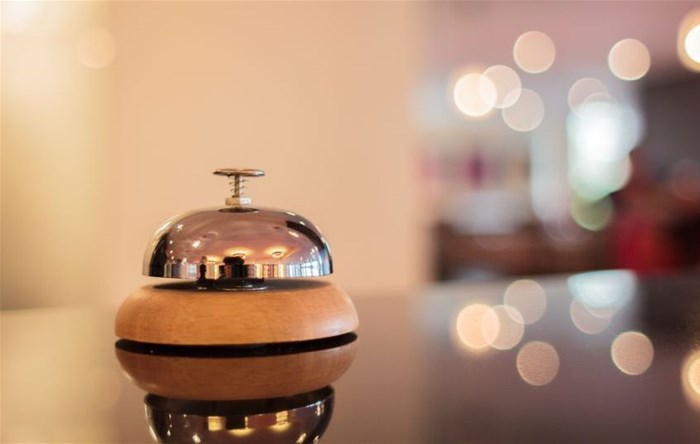
Top stories






More news

ESG & Sustainability
#AGES2026: How to back Africa's next-gen green and blue entrepreneurs
















Logistics & Transport
#Budget2026: Road freight logistics and what it means for consumers


While the local economy grapples with inflation, one light in the darkness is South Africa’s tourism and hospitality sector (and that of Africa as a whole). The exchange rate works in favour of international travellers, making South Africa an appealing and accessible destination. The combination of affordability with an authentic African setting creates opportunities within the travel accommodation market – according to research released by StatsSA on World Tourism Day, July saw South African hotels experiencing a surge in occupancy. But how to retain that market share?
As travel continues to evolve, hotels face the challenge of striking the right balance between competitive rates and exceptional service. Skift found that thanks to inflation and rising operating costs, hotel room rates are on the rise – and guests are not happy. As we move into 2024, hotels will have to offer more innovative, outstanding customer experiences if they are to continue to draw in customers.
"Bleisure" travel, a blend of business and leisure, is enjoying an upsurge in popularity. According to Forbes, this trend is expanding to include families who mix business with leisure travel as a way to reconnect; while the Global Business Travel Association predicts that international business travel spending may double by 2024. Bleisure travellers are demanding more varied offerings to meet their changing travel needs, such as more spacious accommodations or amenities.
Both international and domestic travellers are looking for experiences that allow them to enjoy leisure activities alongside their professional commitments. Although regions like Egypt and South Africa are emerging as bleisure hotspots – Cape Town’s V&A Waterfront is emerging as a favourite, having seen an 18% surge in occupancy so far in 2023 – more hotels across Africa must adapt to cater to this evolving trend.
Tourist circuits – routes that take in at least three major tourist destinations, each in a different town, city or village – are also changing the travel landscape. This approach caters to travellers seeking diverse experiences within a single journey, encompassing, say, a mountain and beach experience in Cape Town, the social scene in Johannesburg and a game drive in Hoedspruit. Tourist circuits enable visitors to experience the best each place has to offer without the hassle of constant travel. These kinds of package deals are increasingly popular and could provide a revenue stream for hotels with innovative ideas.
Increasingly, people are looking to hotels to give them a break from work and stress that will enhance their physical and mental wellbeing.
The phenomenon of wellness tourism is nothing new but in 2024, hotels will need to up their game to provide specialised wellness packages and amenities catering to travellers’ demands for self-care and holistic wellbeing. This goes beyond indulgent spa treatments – hotels increasingly offer state-of-the-art fitness facilities, healthy dining options, yoga retreats, even cosmetic treatments and spiritual experiences in the quest to meet guests’ demand for trips that cater to their overall health.
A growing number of travellers are realising that you don’t necessarily have to fly to a foreign destination for a couple of weeks to rest and recharge. Instead, you can achieve the same effect with shorter trips spread through the course of the year.
For some travellers, these so-called microcations take the form of a weekend away, a midweek break or a few days’ holiday tacked onto the end of a business trip. It’s also a trend that’s taking off in South Africa. That’s evident in figures released by the Ministry of Tourism, which show that "domestic overnight trips from January to September 2022 reached 23.9 million… 138.6% over the same period in 2021".
This trend is also driven by the desire for quick getaways, free from the hassles of long-distance travel. Wanting to reconnect with nature, enjoy coastal retreats and visit family and friends are most often cited as reasons to take a staycation. Hotels and resorts in local and regional destinations should work to enhance their offerings to satisfy the needs and budgets of staycationers.
In 2024 hotels can’t afford not to keep adapting to meet the evolving preferences of today's travellers. As the travel industry continues to evolve, competitive hotels must work hard to meet the changing needs of travellers and provide the best possible experience – regardless of the purpose of their journey.
Industries around the world are under growing pressure to operate sustainably. That’s as true for the hospitality sector as it is for any other industry. According to the Sustainable Hospitality Alliance, hotels need to, “reduce their carbon emissions by 66% per room by 2030, and by 90% per room by 2050 to ensure that the growth forecast for the industry does not lead to a corresponding increase in carbon emissions”.
In order to meet those goals, sector players need to take a holistic approach to sustainability. That means ensuring that guests experience fully sustainable stays and that as many hotel functions as possible are carbon neutral.
Over the past year or so, tools such as ChatGPT and Midjourney have catapulted artificial intelligence (AI) into the public consciousness. As impressive as these public-facing tools are, however, its applications in the hotel sector will be less visible.
AI can, for example, help hotels predict customer behaviour and alter their market accordingly. It can also help provide more personalised experiences to guests based on their past behaviour, preferences, and demographics.
Critically, it can also help automate many time-consuming operational aspects such as revenue management and inventory control.
Ultimately, the shifts signalled by these trends demonstrate how important it is that hotels keep adapting. The wants and needs of hotel guests are constantly evolving and, if hotels are to stay relevant in the minds of their most loyal guests they must change and evolve just as quickly.